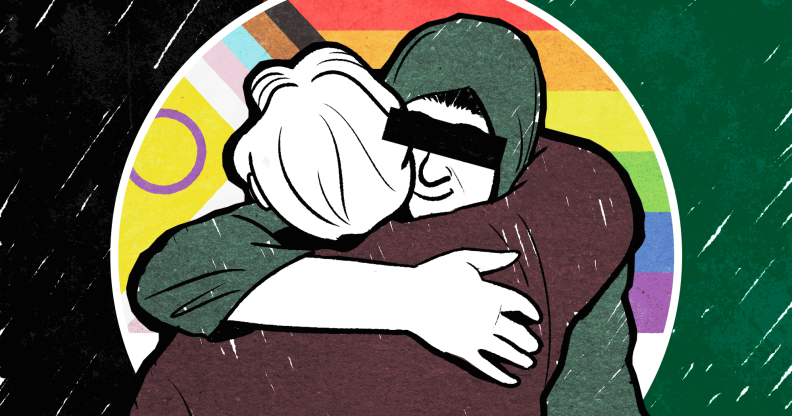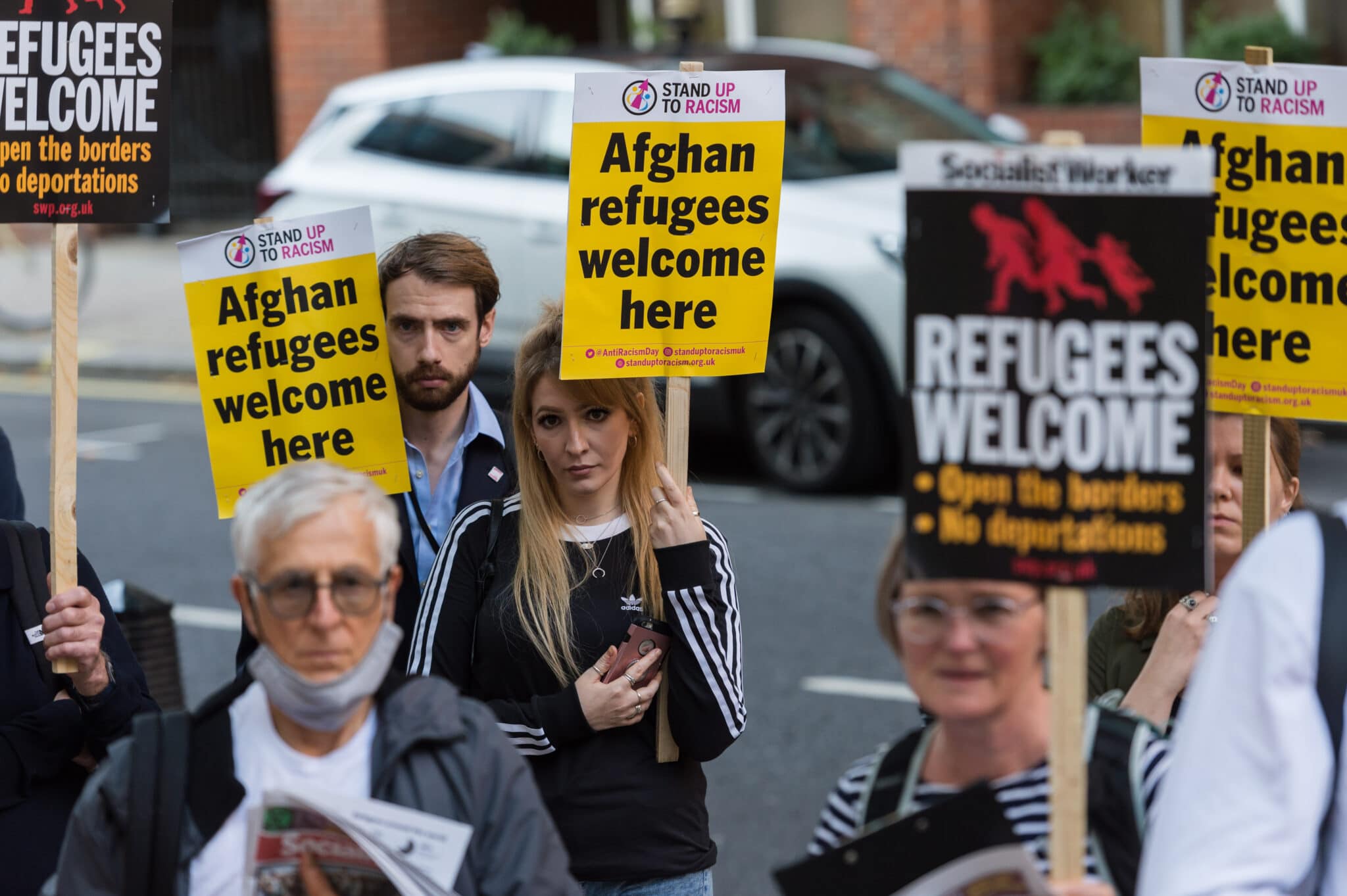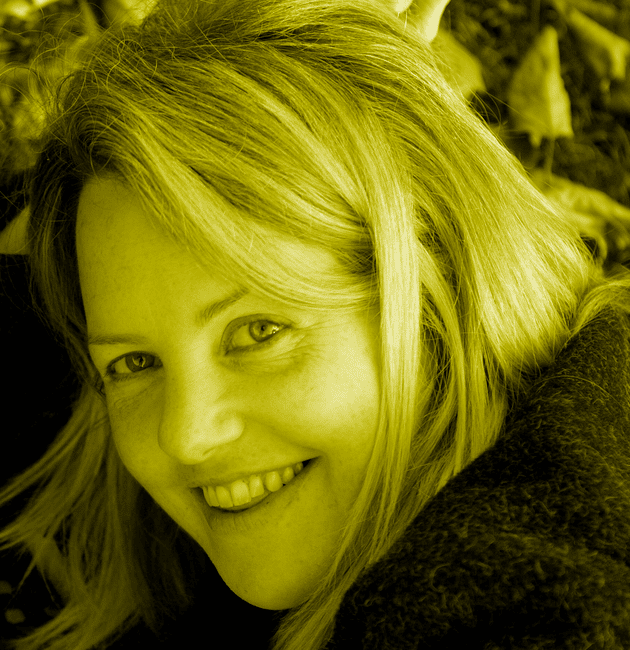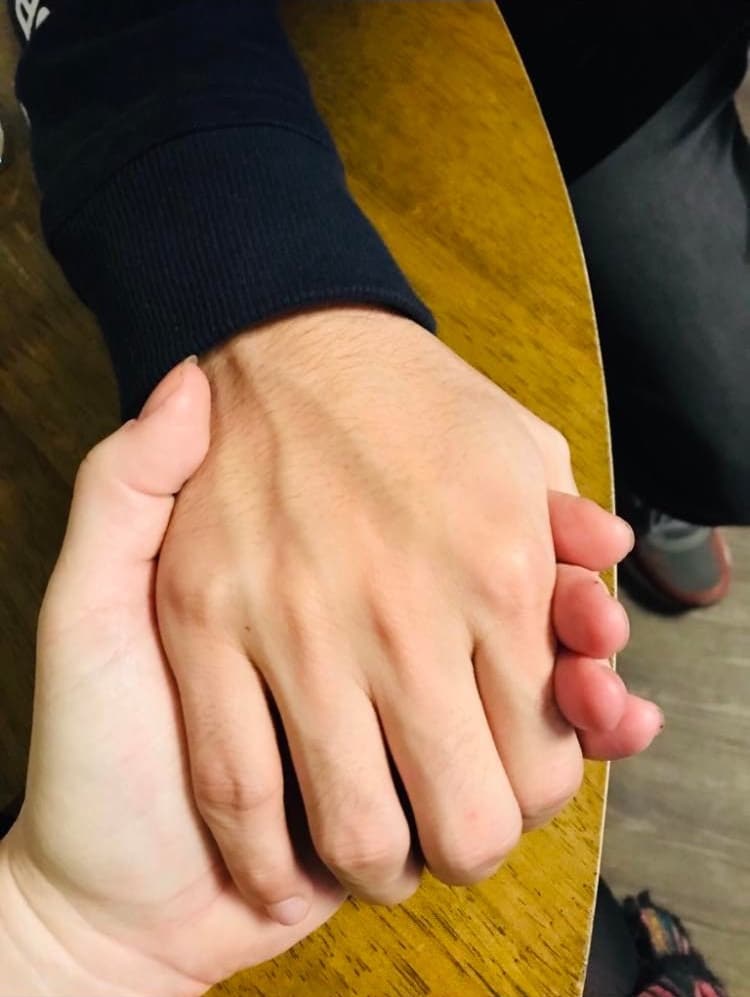Gay Afghan forced to watch Taliban behead his father ‘learned how to feel proud’ after escaping

Tess Berry-Hart has formed a powerful friendship with Ahmad since they helped him get out of Afghanistan following the fall of Kabul in August 2021. (PinkNews)
A gay man who escaped the Taliban found hope, pride and friendship after fleeing Afghanistan for the UK.
Ahmad* still remembers the panic he felt when the Taliban seized power in Afghanistan.
The takeover was a devastating prospect for most Afghans, but Ahmad’s own history made it unbearable. As a child, Ahmad was forced to watch as Taliban members murdered and beheaded his father in front of him.
“They left the body there and I was so young that I couldn’t carry it, and nobody was touching him because they were thinking, ‘He doesn’t deserve to be buried because he is Christian.'”
When Kabul fell to the Taliban a year ago, on 15 August, 2021, Ahmad knew he was already a target because of his religious background – but being gay on top of that put him at even greater risk.
He reached out to the Aman Project, an organisation that advocates for LGBTQ+ rights in the Middle East and North Africa. From there, he was put in touch with Tess Berry-Hart, a non-binary author and one of the Aman Project’s volunteers.
Their connection was instant when they had their first video call. Since then, Ahmad and Tess have gone on to form a powerful friendship that has proven life-affirming for them both.
“I saw the bright British eyes over the camera, giving me hope and motivation and trying to help me stay strong while the Taliban were driving along the street with their guns,” Ahmad tells PinkNews on a joint call with Tess.

Tess remembers how quickly they formed a bond. “I remember talking to you in this room, actually, and introducing myself and saying hello, and then both of us just started laughing. The situation was so extreme.”
Fleeing Afghanistan became increasingly difficult as the Taliban took over
In those early days, Tess spoke to Ahmad regularly on the phone. They did everything they could to keep his spirits up – even though they knew there was no guarantee Ahmad would make it to safety.
“I was trying to encourage you so that you would feel hope, but at the same time I thought: ‘I really don’t know how this is going to end,’” Tess tells Ahmad.
“While we were talking the Taliban took over the whole city, and a couple of days later there was the bomb. We had gotten you on an evacuation list, but then the whole airport was closed. It was blow after blow after blow. Then the borders were closed, nobody could get out. I really thought: ‘Oh my god, if the only thing I can do for you is stay and talk to you every night until something happens, that’s what I’ll do.'”
Then, out of the blue, Ahmad received word that he had been put on an evacuation list. The day he was due to fly out of Afghanistan, he looked out of his bedroom window and saw a group of Taliban members standing around smoking.
“We were worried in case they didn’t leave by the time you had to go and get your flight,” Tess says.
Thankfully, the Taliban officials left the scene and Ahmad was able to fly to the UK.
It was my first time coming out to someone.
Shortly afterwards, he was finally able to meet Tess face to face.
“The first time we met each other, we went to a local pub – that was my first time being in a local pub – and it was my first time meeting someone and coming out to them openly as a gay man,” Ahmad says.
“We hugged each other, we were just screaming. I was so excited that I thought for a moment I was disconnected from everything. I was just feeling love.”

‘Trauma’ meant Ahmad was ‘nervous’ about going to gay bars
In the months since, Tess has helped Ahmad explore queer life in the UK. They’ve ventured into London’s queer epicentre, Soho, together, and they’ve visited gay bars.
“You were so shy about going to gay bars at the beginning,” Tess says.
“Yes, because the trauma and the self-censorship was so strong,” Ahmad replies. He describes Afghan society as “very homophobic”.
“Tess helped me to learn how to not feel scared and how to feel proud of myself in this country.” One of the ways Tess helped Ahmad adjust was through a simple but powerful gesture.
“When we spoke, when all the Taliban were driving around, you said: ‘I’d love to wear something rainbow or something outwardly gay, but I never could. And I said: ‘I’ll buy you some rainbow socks.’”
They did, and those socks have become a small but significant symbol of Ahmad’s new-found Pride.
Since then, Ahmad has visited Tess at Christmas and Easter. In the meantime, he’s working hard to embed himself in his new life.
“I’m trying to resettle here, find a job. It’s a bit difficult now, there’s lots of things happening about housing, but once I get a good job I’m going to try and pay back by helping someone else in need and continue the chain.”
Even when Ahmad was still in Taliban-controlled Afghanistan, he was working to get other LGBTQ+ people evacuated. While in hiding, he worked as a translator, and he pulled together a list of other queer people who needed to be evacuated.
“I was feeling guilty to save only myself and forget about lots of people who are suffering and struggling,” Ahmad explains. “You can make a better world if every human being helped each other.”

Ahmad has ‘a new life’ – and he can finally be himself
A year on, Ahmad knows just how lucky he is to have gotten to safety. He can pinpoint the exact moment he realised he had found his new home.
“I was so quickly adapting and adjusting myself to this new country and this new culture and finally, one day, I went to the park and I took a deep breath out. I could smell the herbs around me, all the plants, the birds singing, and it was like a rebirth and a resurrection.”
Ahmad doesn’t know when he was born, and he doesn’t know what age he is. He thinks he’s somewhere between 27 and 30, but he will never know for sure. Now, he says 29 October is his birthday.
“That was the day I arrived here and was given a new life where I could be myself.”
*Ahmad’s name has been changed to protect his identity. You can donate to the Amal Project’s fundraiser here.

